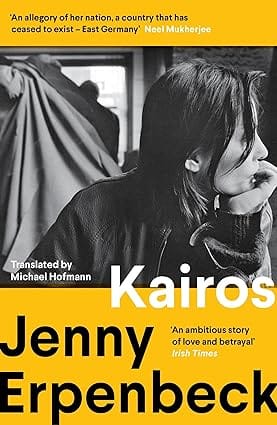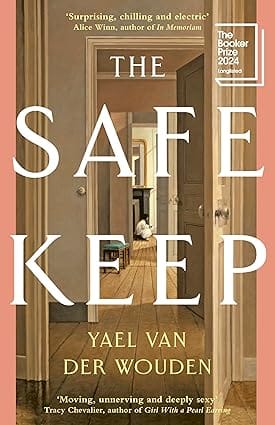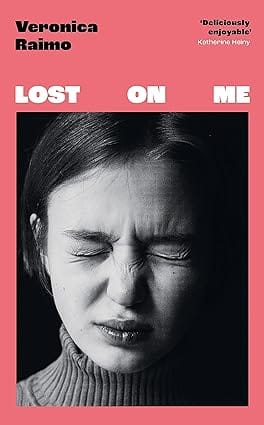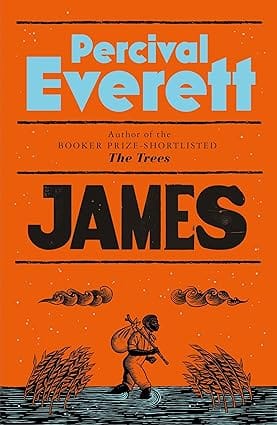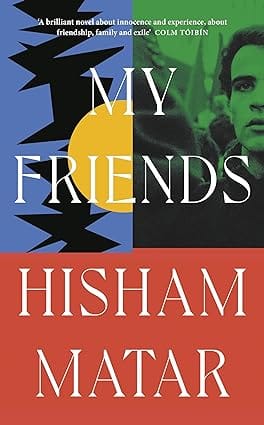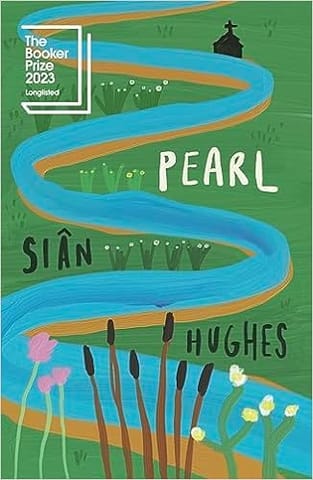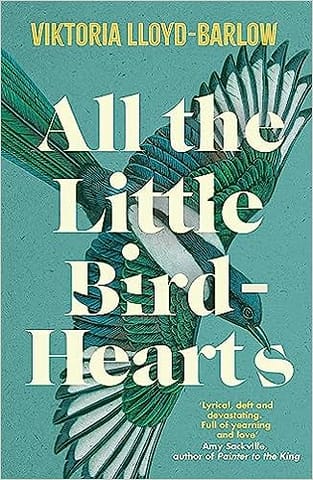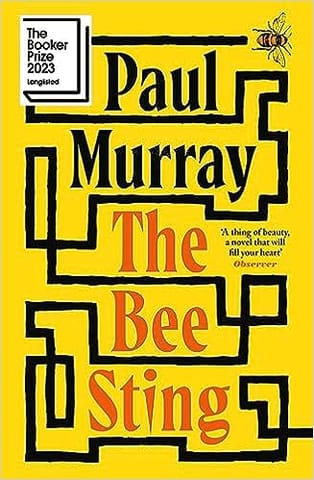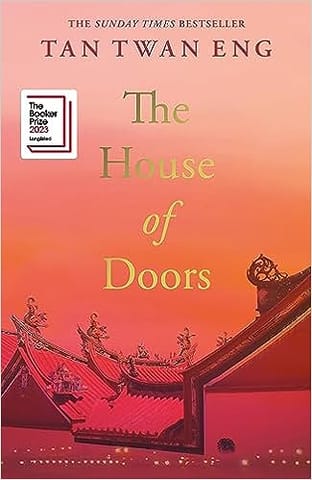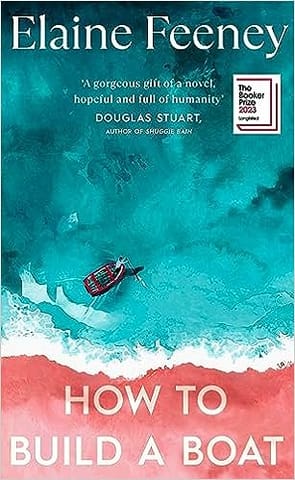- Contemporary Fiction
- Contemporary Fiction
- Children
- Children
- Comics & Graphic Novels
- Comics & Graphic Novels
- Non-Fiction
- Non-Fiction
- Fiction
- Fiction
In Cold War Berlin, an Affair Born of Chaos and Control
Jenny Erpenbeck’s novel “Kairos” folds intimations of German history and cultural memory into a torrid romance.
The first thing to know about Jenny Erpenbeck’s new novel, “Kairos,” is that it’s a wallow. I was in the mood for one. It’s a cathartic leak of a novel, a beautiful bummer, and the floodgates open early.
Iris Murdoch described the shedding of tears as “usually an action with a purpose, a contribution even to a conversation.” Samuel Beckett took a dimmer view. He wondered if tears were “liquefied brain.”
In “Kairos,” which is about a torrid, yearslong relationship between a young woman and a much older married man, the tears are of every sort: smart and stupid, ugly and otherwise, precipitated by pleasure, pain, laughter, confusion.
This is East Berlin in the late 1980s, just before the fall of the wall. The young woman, Katharina, is a theater design student. Her eyes are described as “fishy”; at the start, she is 19.
Review
An ambitious story of love and betrayal - Irish Times
Carefully structured and [...] emotionally resonant... As ever with Erpenbeck, history makes mincemeat of those swept along in its wake: which is to say, all of us. Kairos furthers the conviction that Erpenbeck is a dead cert for a future Nobel prize - Guardian
A subtle, richly layered, densely allusive and hugely ambitious novel... Kairos is an impressive achievement that has deepened my admiration for Erpenbeck's talent for weaving into her fiction clashes of ideology and convulsions of history - Spectator
An extraordinary story of twisted love that unspools in East Berlin during the last years of the GDR... Like all the best allegories, Kairos cannot be reduced to a single, unambiguous message. Kairos is an autopsy of those broken bonds that you were sure would last forever - Sunday Telegraph
A new book from German author Jenny Erpenbeck is always worthy of note and Kairos is no exception... This is Erpenbeck at her brilliant best. One of the great fictional chroniclers of modern Europe - New European
Erpenbeck is a writer with a roving, furious, brilliant mind. Kairos bears with it the absolute urgency of existential questions... Erpenbeck's handling of characters caught within the mesh (and mess) of history is superb. - Los Angeles Times
Erpenbeck is among the most sophisticated and powerful novelists we have. Clinging to the undercarriage of her sentences, like fugitives, are intimations of Germany's politics, history and cultural memory. It's no surprise that she is already bruited as a future Nobelist - New York Times
Kairos is one of the bleakest and most beautiful novels I have ever read - Guardian
Stylishly translated by Michael Hofmann, this is a finely calibrated book... Erpenbeck's subtle use of mirroring reflects the unbreakable links that remained between East and West Germany - Observer
An intimate account of obsessive, transgressive passion. Erpenbeck writes masterfully about time - Harper's
Here's an early contender for novel of the year... There's jealousy, deception, surveillance, cruelty. Pulsing with emotion, it's a beautiful, upsetting work - Telegraph
Kairos effectively captures the generational divide in Germany at the time of reunification... The end of the affair is a clever analogue for the demise of the socialist experiment - Financial Times
Revelling in complexity and ambiguity, Erpenbeck knows that no one is all bad, no state all rotten, and she masterfully captures... existential bewilderment -- Anna Katharina Schaffner - TLS
In Erpenbeck, Germany has a rare national writer whose portrayals of a ruptured country and century are a reminder that novelists can treat history in ways that neither historians nor politicians ever could, cutting through dogma, fracturing time, preserving rubble... Erpenbeck's novels point us beyond her nation's particular convulsions; they are about capturing what humans leave behind as other humans follow them-the ruins we must live with, even as they molder - Atlantic
This clever narrative offers an uncomfortable allegory of life under the Stasi, and the finale packs a punch - Daily Mail
Erpenbeck...weaves together her story of loss, lies and betrayal (in both the personal and political spheres) with tremendous skill; artfully translated by Michael Hofmann - Collagerie
In this granular and, at times, shockingly intimate narrative of an all-consuming love affair that ultimately turns abusive, Jenny Erpenbeck has written an allegory of her nation, a country that has ceased to exist -- East Germany. No writer on the world stage can make the texture and details of individual lives articulate so seamlessly and unobtrusively the way humans are subjects of, and subjected to, history. The ending is like a bomb thrown into your room -- you'll be reeling for days and weeks to come. -- Neel Mukherjee
[Erpenbeck] writes confident, sexy sentences... The novel's political allegory is smarter than most - The Times and Sunday Times
[A] rigorously beautiful novel - Telegraph
[Kairos] affected me greatly... it has really stayed with me - Irish Independent
About the Author
Michael Hofmann is a poet and German translator. His most recent collection of poems is One Lark, One Horse. He is a Granta contributing editor.
- Home
- Award Winner Books
- Kairos
Kairos
SIZE GUIDE
- ISBN: 9781783786138
- Author: Jenny Erpenbeck
- Publisher: Granta
- Pages: 304
- Format: Paperback
Book Description
In Cold War Berlin, an Affair Born of Chaos and Control
Jenny Erpenbeck’s novel “Kairos” folds intimations of German history and cultural memory into a torrid romance.
The first thing to know about Jenny Erpenbeck’s new novel, “Kairos,” is that it’s a wallow. I was in the mood for one. It’s a cathartic leak of a novel, a beautiful bummer, and the floodgates open early.
Iris Murdoch described the shedding of tears as “usually an action with a purpose, a contribution even to a conversation.” Samuel Beckett took a dimmer view. He wondered if tears were “liquefied brain.”
In “Kairos,” which is about a torrid, yearslong relationship between a young woman and a much older married man, the tears are of every sort: smart and stupid, ugly and otherwise, precipitated by pleasure, pain, laughter, confusion.
This is East Berlin in the late 1980s, just before the fall of the wall. The young woman, Katharina, is a theater design student. Her eyes are described as “fishy”; at the start, she is 19.
Review
An ambitious story of love and betrayal - Irish Times
Carefully structured and [...] emotionally resonant... As ever with Erpenbeck, history makes mincemeat of those swept along in its wake: which is to say, all of us. Kairos furthers the conviction that Erpenbeck is a dead cert for a future Nobel prize - Guardian
A subtle, richly layered, densely allusive and hugely ambitious novel... Kairos is an impressive achievement that has deepened my admiration for Erpenbeck's talent for weaving into her fiction clashes of ideology and convulsions of history - Spectator
An extraordinary story of twisted love that unspools in East Berlin during the last years of the GDR... Like all the best allegories, Kairos cannot be reduced to a single, unambiguous message. Kairos is an autopsy of those broken bonds that you were sure would last forever - Sunday Telegraph
A new book from German author Jenny Erpenbeck is always worthy of note and Kairos is no exception... This is Erpenbeck at her brilliant best. One of the great fictional chroniclers of modern Europe - New European
Erpenbeck is a writer with a roving, furious, brilliant mind. Kairos bears with it the absolute urgency of existential questions... Erpenbeck's handling of characters caught within the mesh (and mess) of history is superb. - Los Angeles Times
Erpenbeck is among the most sophisticated and powerful novelists we have. Clinging to the undercarriage of her sentences, like fugitives, are intimations of Germany's politics, history and cultural memory. It's no surprise that she is already bruited as a future Nobelist - New York Times
Kairos is one of the bleakest and most beautiful novels I have ever read - Guardian
Stylishly translated by Michael Hofmann, this is a finely calibrated book... Erpenbeck's subtle use of mirroring reflects the unbreakable links that remained between East and West Germany - Observer
An intimate account of obsessive, transgressive passion. Erpenbeck writes masterfully about time - Harper's
Here's an early contender for novel of the year... There's jealousy, deception, surveillance, cruelty. Pulsing with emotion, it's a beautiful, upsetting work - Telegraph
Kairos effectively captures the generational divide in Germany at the time of reunification... The end of the affair is a clever analogue for the demise of the socialist experiment - Financial Times
Revelling in complexity and ambiguity, Erpenbeck knows that no one is all bad, no state all rotten, and she masterfully captures... existential bewilderment -- Anna Katharina Schaffner - TLS
In Erpenbeck, Germany has a rare national writer whose portrayals of a ruptured country and century are a reminder that novelists can treat history in ways that neither historians nor politicians ever could, cutting through dogma, fracturing time, preserving rubble... Erpenbeck's novels point us beyond her nation's particular convulsions; they are about capturing what humans leave behind as other humans follow them-the ruins we must live with, even as they molder - Atlantic
This clever narrative offers an uncomfortable allegory of life under the Stasi, and the finale packs a punch - Daily Mail
Erpenbeck...weaves together her story of loss, lies and betrayal (in both the personal and political spheres) with tremendous skill; artfully translated by Michael Hofmann - Collagerie
In this granular and, at times, shockingly intimate narrative of an all-consuming love affair that ultimately turns abusive, Jenny Erpenbeck has written an allegory of her nation, a country that has ceased to exist -- East Germany. No writer on the world stage can make the texture and details of individual lives articulate so seamlessly and unobtrusively the way humans are subjects of, and subjected to, history. The ending is like a bomb thrown into your room -- you'll be reeling for days and weeks to come. -- Neel Mukherjee
[Erpenbeck] writes confident, sexy sentences... The novel's political allegory is smarter than most - The Times and Sunday Times
[A] rigorously beautiful novel - Telegraph
[Kairos] affected me greatly... it has really stayed with me - Irish Independent
About the Author
Michael Hofmann is a poet and German translator. His most recent collection of poems is One Lark, One Horse. He is a Granta contributing editor.
User reviews
NEWSLETTER
Subscribe to get Email Updates!
Thanks for subscribing.
Your response has been recorded.

India's Iconic & Independent Book Store offering a vast selection of books across a variety of genres Since 1978.
"We Believe In The Power of Books" Our mission is to make books accessible to everyone, and to cultivate a culture of reading and learning. We strive to provide a wide range of books, from classic literature, sci-fi and fantasy, to graphic novels, biographies and self-help books, so that everyone can find something to read.
Whether you’re looking for your next great read, a gift for someone special, or just browsing, Midland is here to make your book-buying experience easy and enjoyable.
We are shipping pan India and across the world.
For Bulk Order / Corporate Gifting
 +91 9818282497 |
+91 9818282497 |  [email protected]
[email protected]
Click To Know More
INFORMATION
QUICK LINKS
ADDRESS
Shop No.20, Aurobindo Palace Market, Near Church, New Delhi

